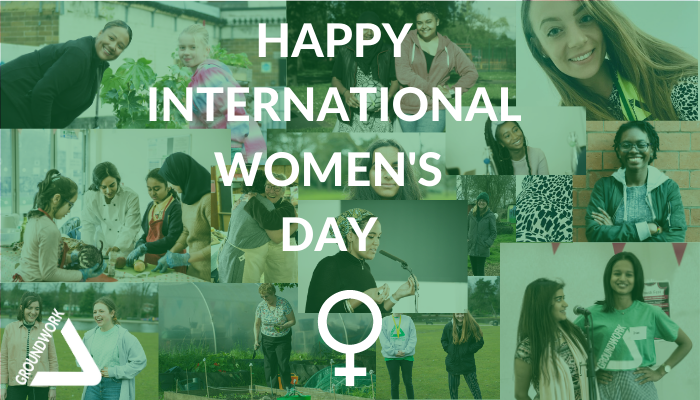BLOG: International Women’s Day: Putting women at the heart of a low carbon future
International Women’s Day: Putting women at the heart of a low carbon future.
The Covid-19 pandemic has highlighted the stark gender divide in employment in the UK. Women are more likely to be working on the frontline in health and social care, in supermarkets, and they are also more likely to be working in industries that are closed, such as retail, personal care and hospitality.
Existing gender inequalities meant that women are more vulnerable to the economic effects of the pandemic. Women tend to work in lower paid roles with less job security and have borne the brunt of job losses. Women are also disproportionately affected by school closures, taking on the bulk of the additional childcare.
This shows us that when a crisis hits, it’s those who are already on the sharp end of inequalities and injustice that are most affected. The same is true of the climate and nature crises and on this International Women’s Day, we’re thinking about what the pandemic has taught us about gender justice in times of crisis, and what lessons we can apply to our work tackling poverty and climate change.
Campaigners in North America have highlighted that care workers – who are disproportionately female – are on the front line when natural disasters hit, trying to protect the most vulnerable. They argue that care work is climate work and are working to develop worker-led visions for how these industries can be transformed as part of a just transition. In the UK, the Women’s Budget Group has found that investment in care is a greener option for recovery spending than investment in construction, producing 30% less greenhouse gas emissions and creating 2.7 times as many jobs.
Work that is relational and person-centred such as in health and care, social work, teaching, youth work and community work are all areas where demand outstrips supply. We will always need people to work in these roles, which are already comparatively low carbon. While the phrase ‘green jobs’ often summons up images of men in hard hats standing next to wind turbines, these ‘caring’ jobs are also a central part of the future green economy, worthy of equal status and investment.
At Groundwork, we work to help people of any gender into green jobs in energy and water efficiency, in nature restoration and landscaping, and in our own Trusts. Through the Kickstart scheme and Green Recovery Challenge Fund we are creating hundreds of new green jobs for young people. We also work to make all jobs greener, mainstreaming carbon literacy and environmental awareness in all roles and supporting businesses to work in a greener way.
It’s important to us that we break down stereotypes and encourage more young women to take up roles in climate-related science, technology, engineering and maths (STEM) and nature; Groundwork London’s Senior Community Projects Officer, Tilly Cook, explored this issue in a blog last year.
But if we only look to solutions that seek to ‘change women’ and the choices they make about their lives and careers, we’re unlikely to get where we want to go anytime soon. It is also important to us to value the contribution that women and girls are already making to the low carbon economy and mainstream thinking about gender equality across all our work.
As well as carrying out essential work in supporting communities in their professional lives, women are often the powerhouses of local community groups, recognising when the existing systems and services aren’t working and doing something about it.
The past twelve months have reminded us of the importance of gender justice in everything we do – and challenged us to do better. We need to do more to celebrate and reward the vital roles women play in local communities and we need to put the voices and desires of women at the heart of our plans for a low carbon future.
Written by Fay Holland

